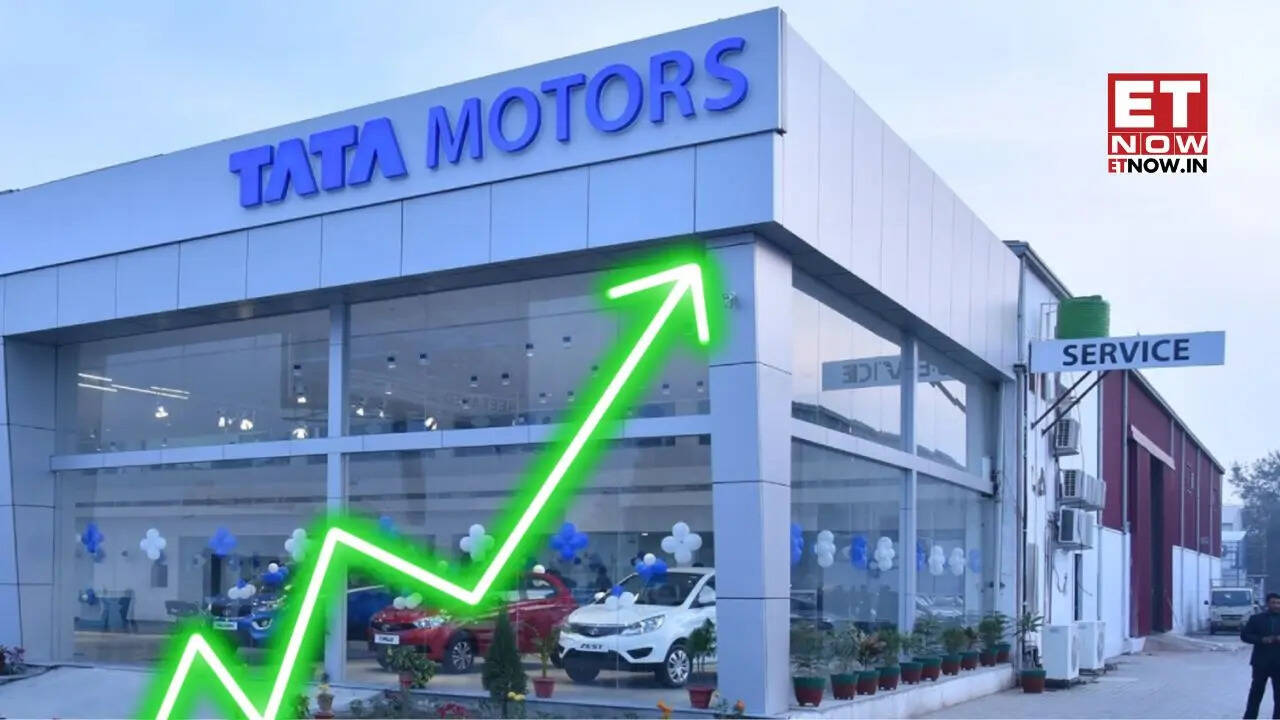Factors Behind the Rise in Tata Motors Share Price
Shares of Tata Motors witnessed a significant surge on Wednesday, with the stock climbing nearly 3 per cent during intraday trading. This upward movement was fueled by positive global market conditions and growing optimism about the upcoming India-UK Free Trade Agreement (FTA). As of the time of writing, Tata Motors was trading at Rs 686, reflecting a 1.89 per cent increase for the day. The stock opened at Rs 676.7 and reached an intraday high of Rs 693.1, outperforming the broader auto sector by 1.12 per cent.
With a market capitalization of Rs 2.47 lakh crore, Tata Motors emerged as one of the top performers on both the Sensex and Nifty 50 indices. This impressive performance highlights the confidence investors have in the company’s future prospects.
Positive Global Sentiment Boosts Auto Sector
The rise in Tata Motors’ share price was partly supported by a positive global sentiment following the announcement of a US-Japan trade deal. This agreement led to a reduction in tariffs on Japanese vehicles entering the US market, which had a ripple effect on global auto stocks. Companies such as Toyota, Honda, and Nissan saw their shares climb, contributing to a more than 2 per cent increase in the Nikkei 225 index.
This global upswing had a visible impact on the Indian auto sector as well. Major players like Tata Motors, Maruti Suzuki, Mahindra & Mahindra, Bajaj Auto, and Hyundai Motor India all recorded intraday gains of up to 3 per cent. The Nifty Auto index also rose by 1 per cent in early trade, reflecting the overall positive mood in the sector.
Impact of the India-UK FTA
A key driver behind the recent surge in Tata Motors’ share price is the expected signing of the India-UK FTA on July 24. Commerce Minister Piyush Goyal is set to accompany Prime Minister Narendra Modi to London for the official signing of the agreement. This development has generated considerable excitement among investors and industry experts alike.
The FTA is anticipated to bring several benefits to Tata Motors, particularly its British subsidiary, Jaguar Land Rover (JLR). The agreement is expected to reduce import duties on cars from the UK, making JLR products more competitive in the Indian market. Additionally, the deal could boost trade in sectors such as leather, footwear, and clothing, while also making whisky and cars from Britain more affordable in India.
The India-UK FTA aims to double bilateral trade to $120 billion by 2030, marking a significant step towards strengthening economic ties between the two nations. For Tata Motors, this presents a valuable opportunity to expand its footprint in the UK and enhance its global operations.
Conclusion
The recent rise in Tata Motors’ share price can be attributed to a combination of positive global market conditions and the potential benefits of the India-UK FTA. As the company continues to navigate these favorable developments, it is likely to maintain its strong performance in the coming weeks. Investors are closely watching how the FTA will impact the company’s operations and long-term growth prospects.







